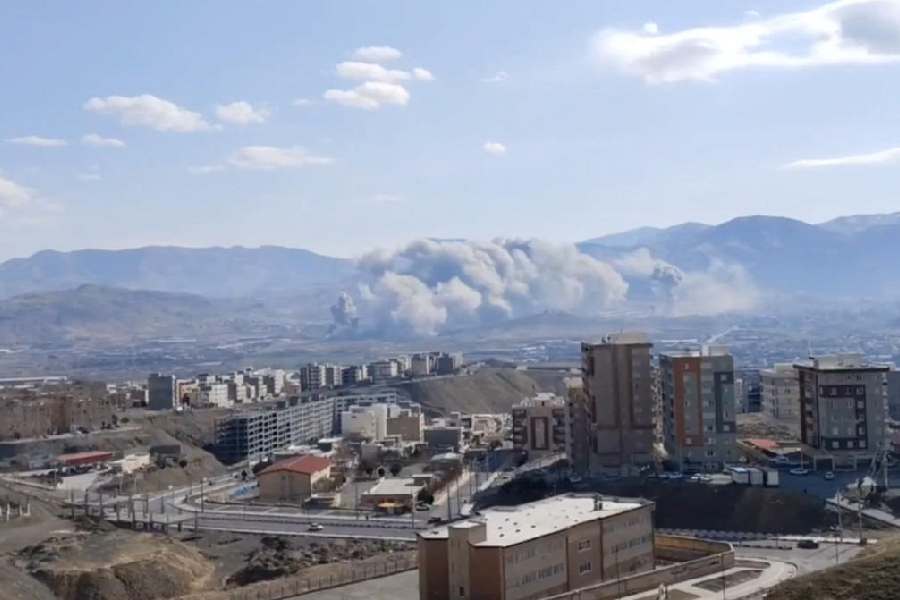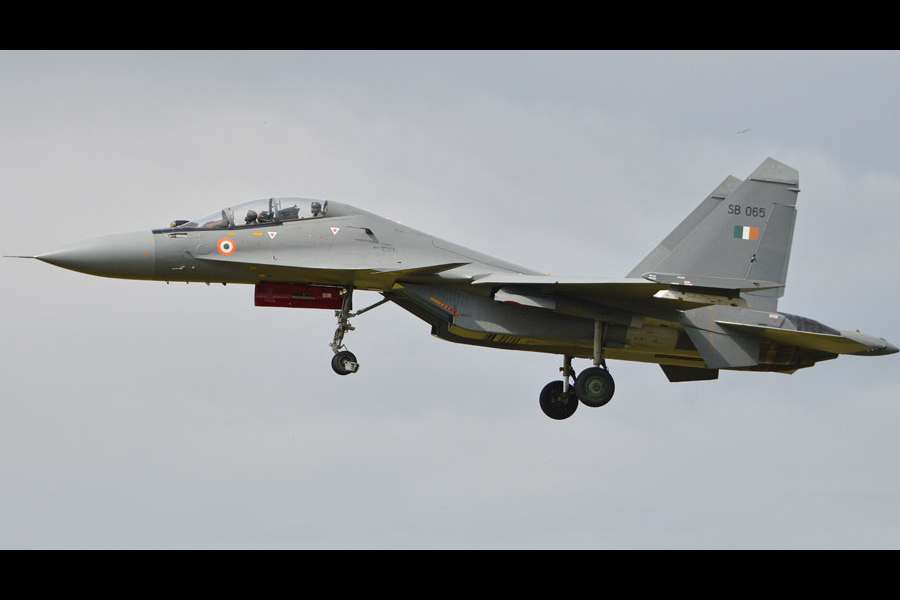Lifetime of happiness
Sir — Phuchka, some would argue, is priceless. But does that really mean people will be ready to shell out Rs 99,000 for a lifetime supply of phuchkas? A vendor in Nagpur is offering his customers exactly this deal. He argues that as the prices of phuchkas increase with inflation, this crispy, umami delight is weighing heavier on the pocket — in the 1980s one could eat 10 phuchkas for a rupee; in the 1990s this became four phuchkas for a rupee; and, now, one can eat a measly four phuchkas for 10 rupees. But those customers who pay Rs 99,000 now can enjoy a lifetime of phuchkas for free without worrying about inflation. Given how many phuchkas a true aficionado can polish off in one go, this truly might be a small price to pay for a lifetime of gluttony.
Roshni Sen, Calcutta
Tragic apathy
Sir — It is unfortunate that 18 people lost their lives and many others were injured in a stampede at two platforms of the Delhi railway station (“Crushed in Delhi station rush”, Feb 16). The fact that the stampede took place in spite of the presence of police personnel and announcement systems reveals an utter failure of crowd management on the part of the Indian railways.
D.V.G. Sankara Rao, Andhra Pradesh
Sir — The stampede at the New Delhi railway station raises questions about the security measures taken by the Indian railways and underscores a significant failure on the part of the authorities. Passenger safety is particularly at risk during large-scale religious gatherings. One hopes that the railway authorities will take appropriate measures to prevent such accidents in the future.
Devendra Khurana, Bhopal
Sir — A sudden announcement about the arrival of a special train at the New Delhi railway station triggered the stampede, which killed 18 people. The deaths were thus clearly caused by mismanagement and a lack of crowd control measures.
Romana Ahmed, Calcutta
Sir — The stampede at the New Delhi railway station could have been avoided if the authorities had taken steps to regulate the crowd that was gathering owing to delayed trains. Indiscipline on the part of the crowd, too, was responsible for the tragedy. Clearly, no lesson has been learnt from similar incidents in the past. People need to be made aware of the pitfalls of unruly behaviour.
Sravana Ramachandran, Chennai
Sir — The stampede at the New Delhi railway station claimed 18 lives, highlighting the need for the Indian railways to adopt modern strategies for crowd management and passenger safety. Authorities should anticipate large gatherings during big events and pilgrimages and ensure better organisation through the use of technology. The government has condoled the deaths and the Union railways minister, Ashwini Vaishnaw, has ordered a high-level inquiry into the incident. However, what is required are proactive steps to manage crowds by deploying more security personnel and providing timely information and warnings to passengers.
R.K. Jain, Barwani, Madhya Pradesh
Sir — According to the railways, tickets had been sold beyond the capacity of a special train to Prayagraj, leading to overcrowding and a stampede. Accidents due to overcrowding are a regular occurrence at the time of religious festivals. An audit of the number of seats available and the number of tickets issued could have easily prevented this.
Hemachandra Basappa, Bengaluru
Sir — The Union ministry of railways must take proper steps to ensure that incidents such as the recent stampede at the New Delhi railway station are not repeated. Travellers’ safety must be a top priority for the railways, not making money by overselling tickets.
Anshu Bharti, Begusarai, Bihar
Sir — Eighteen people were crushed to death at the New Delhi railway station a few days after 30 people died near the sangam. These incidents underscore the significant responsibility that the authorities must bear during special occasions if such accidents are to be prevented in the future.
P.V. Prakash, Mumbai
Sir — The stampede at the railway station in Delhi shows the lack of proper planning and arrangements that were necessary to accommodate such a huge number of travellers. An in-depth assessment of the situation by the railway authorities would have saved many lives.
Fateh Najamuddin, Lucknow
Selfish motive
Sir — The lieutenant-governor of Delhi has rolled out a four-pronged plan to clean up the Yamuna. This could have been done a long time ago when the Aam Aadmi Party was still in power. The message is clear — if people do not vote for the Bharatiya Janata Party, they cannot expect their needs to be met. A minister in Bihar has even publicly declared that he will provide no assistance to the constituency that did not vote for him. If this is not autocracy, what is?
R. Narayanan, Navi Mumbai
Voice of resistance
Sir — The veteran Bengali singer and composer, Pratul Mukhopadhyay, has passed away (“Singer Pratul Mukhopadhyay dies at 83”, Feb 17). He was known for his songs on social issues and protests. His voice sounded divine even without any instruments.
Jayanta Datta, Hooghly
Sir — Pratul Mukhopadhyay’s songs had appealed to a wide audience. The spirit of activism imbued his lyrics, which shall inspire future generations. His demise is an irreparable loss.
Santi Pramanick, Howrah











